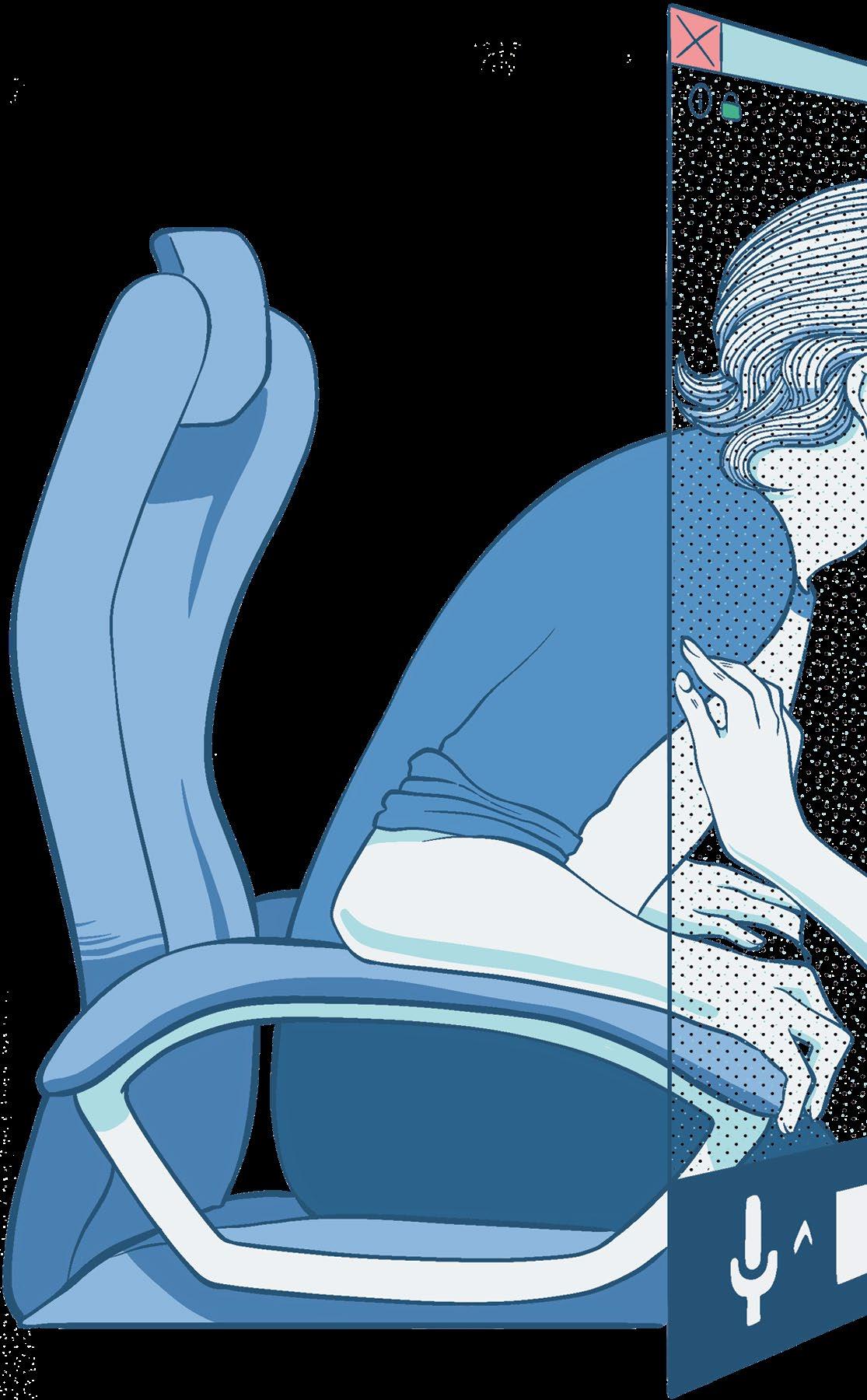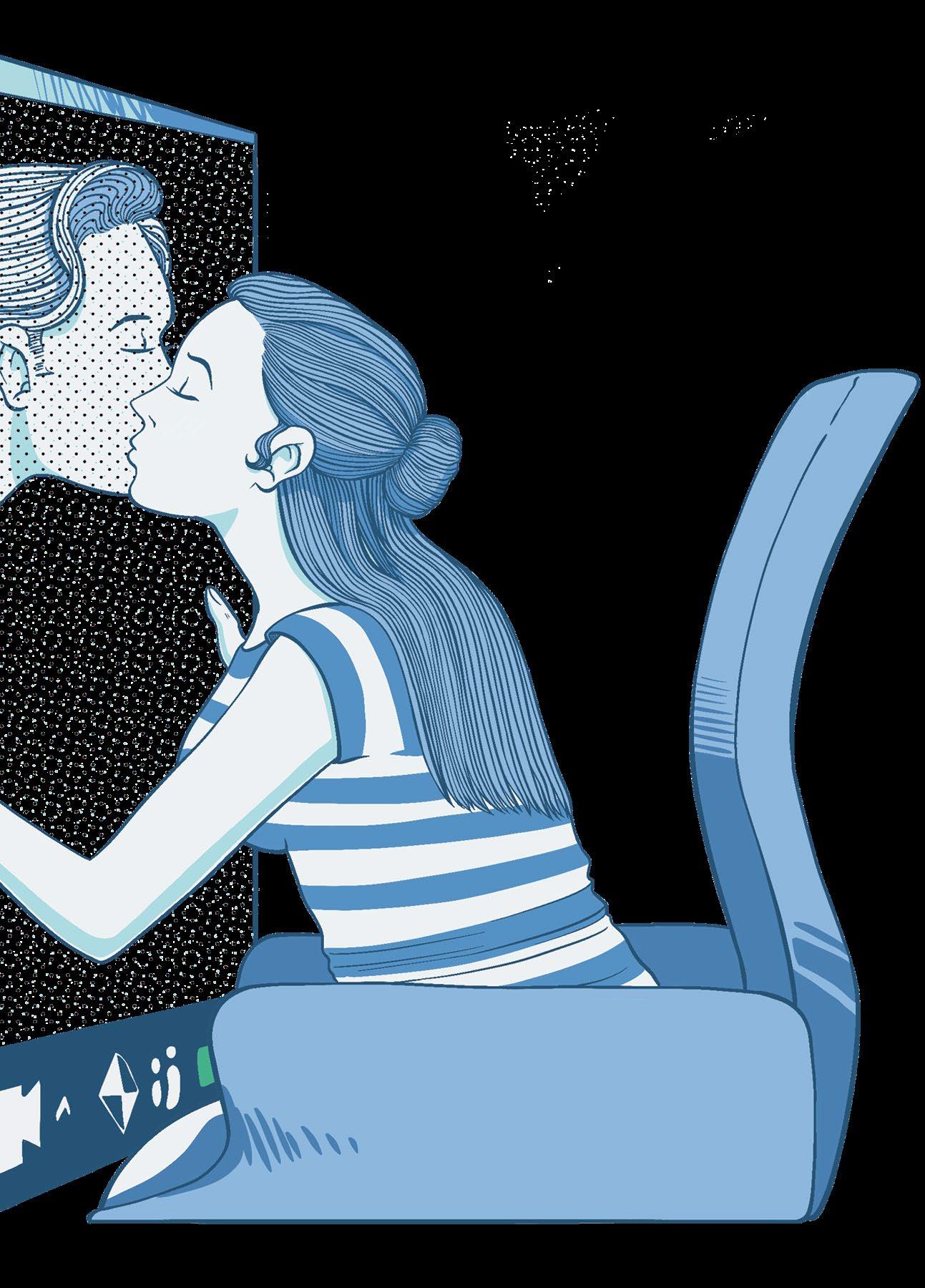
2 minute read
HOW THE PANDEMIC HAS CHANGED OUR RELATIONSHIPS CULTURE
Nothing is the same with COVID-19, that includes our relationships
MATT SHIPLEY (HE/HIM) Contributor ALINA SANDU Illustrator
Advertisement
I look back on my middle-school self with a mixture of derisive amusement and pity. The kid who was so out of the loop, he didn’t even try to fit in, the kid who thought playing Minecraft at lunch and breaking the school beep test record twice in two days would do anything but alienate me from the general population. I had friends, but I couldn’t really be myself around them. The primal human instinct to gravitate towards other people was completely lost on me.
Over the next six years, I put as much distance between myself and that kid as possible. I joined clubs, dove headfirst into the music program, and forced myself to be as sociable as my despicably introverted brain would let me. After three increasingly social years in high school, living across the pond for a year and a successful first year in university, I never expected to feel like I’m back at square one, and yet here I am.
I’ve always found it really hard to reconnect with people I haven’t seen in a while, especially if they live in a different country.

I always start by texting them every few days, then it becomes once a week, then a couple times a month, then it just fizzles out. Any rekindling of conversation after the initial dropoff just feels forced, even with a wonderful friend I made in France— one of the people I swore to myself I would do my utmost to keep close to my heart. There’s always that exciting catch-up phase, then… nothing.
I’ve always been careful with COVID, and I will continue to do so. In the first year or so of the pandemic, that meant barely ever seeing my friends, staying distanced and masked, and constantly checking in on my own personal health. What I didn’t expect, though, was for my repressed, introverted self to make a vengeful comeback. Not seeing my friends because of the pandemic turned into not seeing them because I didn’t want to. These days, even with the vaccine rollout, and most of my friends and I having both doses, I find myself grasping for excuses to avoid nights out. My problem with my overseas friends ballooned to include pretty much everybody I knew, over the time I couldn’t see anybody. I avoid conversations with them, fearing that they would be awkward, or worse, different. While I’ve begun to repair a few of the strongest connections I had before the pandemic started, I have a long way to go before I’m anywhere near where I was back in first year.
In complete contrast to that, a few of my relationships have been hugely strengthened because of the pandemic. Online courses meant more time to go on adventures, and the friends I’ve made through those adventures are now the closest friends I have. The pandemic turned an Instagram acquaintance, whom I thought was orders of magnitude cooler than me, into a lifelong friend with whom I get into questionable backcountry situations with at least once a month.
“It’s like a really tight sieve,” said one person I interviewed. “It forced us to tunnel our focus onto the most vital things in our lives, the things we can’t bear to lose. We no longer had the capacity to keep a smorgasbord of random hobbies and interests, so we discarded them. I know I want them all back, but it’s a long process.”
I couldn’t have said it better myself. I hate to think that my distant relationship with my friends stems from a subconscious filter, but I think that’s right on the money. Maybe, when the time is right, reconnection will feel natural. Maybe it won’t happen at all. Either way, we’ll all come out of this pandemic as changed people, and I think that’s a good thing.






